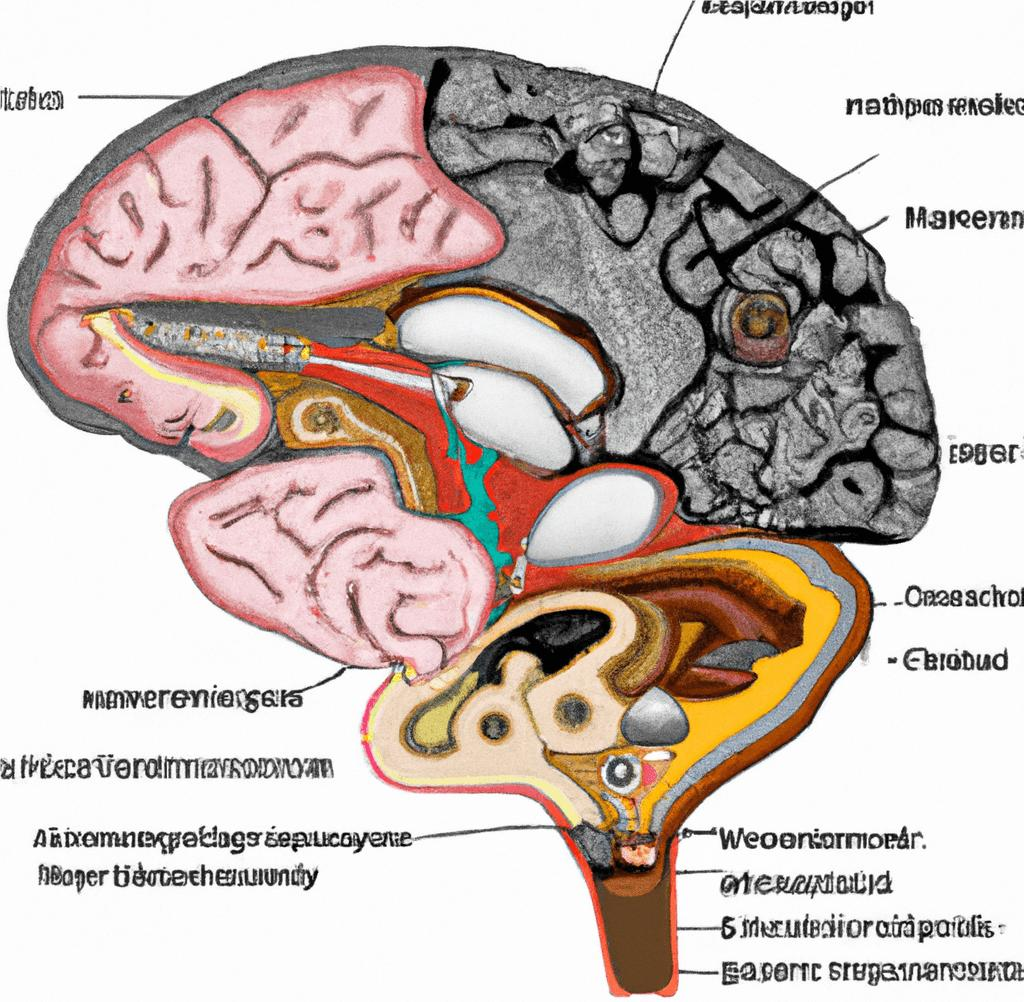Hey there, vape aficionados!
Ever wondered what's happening inside your noggin when you're taking a puff of your favorite e-liquid?
You're in the right place! In this brain-tickling post, we'll delve into the captivating world of nicotine and its effects on our grey matter.
From dopamine rushes to mood regulation and even cognitive function, we're covering it all.
So, strap in, grab your vape, and let's embark on a thrilling journey to unravel the mysteries of how nicotine impacts our brains!
Hey there, fellow vapers! Are you curious about what goes on inside your brain when you're enjoying your favorite e-liquid?
Well, you're in luck! Today, I'm going to dive into the fascinating world of nicotine and its effects on our brains. So grab your mod, take a seat, and get ready to learn something new!


As a "how does nicotine affect the brain" enthusiast, I've discovered that when we vape, nicotine quickly enters our bloodstream and makes its way up to our brains.
Once it gets there, it binds to specific receptors called nicotinic acetylcholine receptors (nAChRs). This interaction sets off a chain reaction, causing the release of various neurotransmitters like dopamine, serotonin, and norepinephrine.
Dopamine, often referred to as the "feel-good" neurotransmitter, is responsible for that pleasurable sensation we feel when vaping. It's the same chemical released during other rewarding activities like eating or listening to your favorite tunes.
But it's not all sunshine and rainbows - there's a catch. The brain starts to crave that dopamine rush, which can lead to nicotine dependence.
Now let's talk about serotonin and norepinephrine. These neurotransmitters play a crucial role in regulating our mood, sleep, and stress levels. Nicotine can temporarily boost their production, giving us a sense of relaxation and alertness.
However, with prolonged nicotine exposure, our brains might become less efficient in producing these neurotransmitters on their own, potentially leading to mood imbalances and increased stress levels.
Another interesting aspect of nicotine's effect on the brain is its impact on cognitive functions.
Some studies have suggested that nicotine may enhance attention, memory, and learning by modulating the release of specific neurotransmitters.
But remember, these potential benefits come with the risk of developing nicotine dependence, which can have adverse effects on overall brain health and function.


So, what does all this mean for us vapers?
Well, being aware of how nicotine affects our brains can help us make more informed choices when it comes to our vaping habits. Here are a few tips to consider:
1. Know your limits: Choose e-liquids with nicotine levels that satisfy your cravings without overstimulating your brain or leading to dependence.
2. Take breaks: Regularly giving your brain a break from nicotine can help maintain a healthy balance of neurotransmitters and reduce the risk of dependence.
3. Consider alternatives: If you're concerned about nicotine's effects on your brain, try exploring other vaping options like CBD e-liquids or nicotine-free e-liquids.
4. Stay informed: Keep up to date with the latest research on nicotine and brain health to make educated decisions about your vaping journey.In conclusion, understanding how nicotine affects our brains is essential to making smart choices when it comes to vaping.
By staying informed and making conscious decisions about our habits, we can enjoy the vaping experience without compromising our brain health.
Happy vaping, my friends, and remember that knowledge is power!
1. Monitor your body's response: Pay attention to how you feel both mentally and physically when vaping, and adjust your habits accordingly. If you notice any negative changes, consider reducing your nicotine intake or exploring alternative vaping options.
2. Vape mindfully: Instead of using vaping as a way to cope with stress or negative emotions, try incorporating other relaxation techniques, such as deep breathing exercises, meditation, or engaging in hobbies that bring you joy.So, fellow vapers, now that you're armed with valuable information about how nicotine affects the brain, you can make more informed choices on your vaping journey.
Embrace this knowledge, stay curious, and continue exploring the vast world of vaping in a responsible and enjoyable manner. Stay safe, and happy vaping!
Empower your vaping journey by understanding nicotine's effects on the brain, making informed decisions, and exploring alternatives for a responsible and enjoyable experience.
FAQ
1. Q: How does nicotine affect the brain when vaping?
A: When vaping, nicotine enters the bloodstream and travels to the brain, where it binds to nicotinic acetylcholine receptors (nAChRs). This binding triggers the release of neurotransmitters like dopamine, serotonin, and norepinephrine, which can influence mood, cognition, and stress levels.
2.Q: Does nicotine improve cognitive function?
A: Some studies suggest that nicotine may temporarily enhance attention, memory, and learning by modulating neurotransmitter release in the brain. However, long-term nicotine use can lead to dependence and potentially have negative effects on overall brain health and function.
3.Q: Can nicotine cause mood imbalances or anxiety?
A: Nicotine can temporarily increase the production of mood-regulating neurotransmitters like serotonin and norepinephrine, providing a sense of relaxation and alertness. However, with prolonged use, the brain may become less efficient in producing these neurotransmitters, potentially leading to mood imbalances and increased stress levels.
4.Q: What are some tips for managing nicotine's effects on the brain while vaping?
A: To manage nicotine's effects on the brain, consider choosing e-liquids with appropriate nicotine levels, taking breaks from vaping, exploring alternative vaping options like CBD or nicotine-free e-liquids, staying informed about the latest research, seeking support if needed, monitoring your body's response, and practicing mindfulness techniques.
